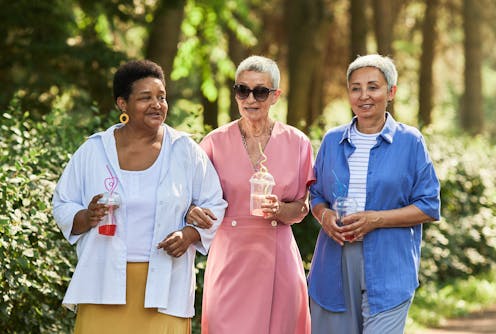
Hysterectomy is one of the most common inpatient surgeries. Currently, nearly one in three Canadian women aged 60 and older have had their uterus removed.
While this rate is falling, mainly due to greater use of non-surgical treatments for many gynecological conditions, hysterectomy appears to be normalized in Canada. Many women and some physicians view hysterectomy as a routine part of aging or natural step after childbearing.
This cultural acceptance is a problem because, in the long term, hysterectomy appears to be associated with an increased risk of heart problems and other chronic illnesses.
In Canada, approximately 35,000 hysterectomies are performed annually. The majority are for non-cancerous conditions such as abnormal uterine bleeding, fibroid growths, and pelvic organ prolapse.
In Alberta, the rate of hysterectomy is more than 20 per cent higher than the national rate (328 versus 269 per 100,000 adult women), and Canadian Institute for Health Information (CIHI) data shows the province has had a comparatively higher rate since 2010.
Hysterectomy and education
Within our team of medical professionals and health researchers, we know hysterectomy can have long-term health consequences and that it is overused in certain patient populations. Our research focuses on female reproductive health across the lifespan, with an overarching vision to make the future of women’s health a priority. We want to understand who is most at risk for poor health outcomes and identify strategies to reduce avoidable harm.
In a recent study, we investigated whether women with lower levels of education were more likely to have a hysterectomy, and at what ages.
We analyzed data from Alberta’s Tomorrow Project, a large, long-term study tracking health and chronic illness in Albertans. We studied almost 35,000 women over a 15-year period. The findings were stark: 29.7 per cent of women with a high school diploma or less had a hysterectomy, compared to 14.7 per cent with a university degree.
After we accounted for several social and medical factors, it appeared that women with a high school education were roughly 1.7 times as likely to have a hysterectomy than those with a university education. Even women with a college degree were approximately 1.6 times as likely to have a hysterectomy than those who were university educated.
We also found that less education meant women were more likely to have surgery at a younger age, and before menopause. This timing is important because when performed before natural menopause, hysterectomy appears to increase the risk of cardiovascular disease, osteoporosis and earlier onset of menopause symptoms.
Social disparities
Our findings raise important questions about social disparities in Canadian medical care. We know that women with lower levels of education often face economic challenges that can limit access to alternative treatments.
For example, if employment does not provide extended health benefits to cover the costs of medical management, women may view surgery — which is covered by Canada’s universal health-care system — as their only viable option. Moreover, they may have less access to health-care providers who are familiar with newer, non-surgical treatments, or who are willing to offer them.
Women with precarious employment or multiple roles at work and home may not be able to cope with unpredictable symptoms, such as unpredictable uterine bleeding, leading them to choose a more definitive treatment earlier.
Our research also questions whether health-care providers may be more likely to recommend surgery to women with less education, possibly due to biases or assumptions about women’s ability to afford or manage non-surgical treatments.
It is also possible that women with less education may have lower health literacy, affecting their ability to make informed decisions, or to participate in shared decision-making. Being less likely to question a doctor’s recommendations or seek second opinions could lead to a higher likelihood of surgery.
It is evident that despite medical advances reducing the need for hysterectomy, there are significant variations in its use across different groups of women. This suggests some surgeries are not driven by medical necessity and may be avoidable. Our study adds to growing evidence calling for greater attention to the social determinants of female reproductive health. We expect it will require multiple approaches to address these disparities.
To begin with, it is essential to improve information about, and access to, non-surgical treatments for all women, including tailoring this as needed for those with less education. One potential area of improvement is Canada’s recent commitment to federal coverage for birth control, since this can provide excellent treatment for conditions such as heavy uterine bleeding.
Investment in pelvic floor physiotherapy is also necessary to ensure non-surgical treatment for pelvic organ prolapse is available to everyone.
Secondly, there is an urgent need for increasing awareness among health-care providers about the importance of shared decision-making and addressing unconscious bias.
Lastly, interventions to improve health literacy among women with lower education levels are critical to enable patients to be more active participants in their health-care decisions. It could also reduce the likelihood of experiencing a potentially avoidable hysterectomy and subsequent long-term health issues.
![]()
The authors do not work for, consult, own shares in or receive funding from any company or organisation that would benefit from this article, and have disclosed no relevant affiliations beyond their academic appointment.
























